In the time before a crisis, bug out plans must be tested and retested to ensure they meet all of the wilderness group’s needs. This is the time to replace leaders or fix major problems in the basic plan. After each change in the plan, the group needs to practice the new plan and evaluate the results to insure the plan is the best that it can be.
A proper step when making those plans is to identify your weaknesses and learn how to work around them. For that reason, see what are the usual mistakes and learn how to avoid them when surviving in the wilderness or camping in order to stay safe.
- A Bad State of Mind
Whether you are surviving in the wilderness or just camping out with friends it is very important to take the situation seriously. One little mistake or an accident can be a life threatening event.
If you are too cocky or a know it all, your manner will portray you as a person that does not really care about what they are doing or what is going on. This can turn out to be a morale breaker and bring out the worst in people that have to work closely together.
- Laziness or Stuck in a Rut
Being lazy or stuck in a rut is not a good state of mind in any wilderness camping trip. These individuals will slow down anything that they are assigned to do.
Most individuals that are affected with this problem usually spend more time trying to get out of work than it would have taken them to just do the job in the first place. Lazy individuals can endanger the whole camping group with their short cuts and not sticking to prepared set of procedures.
Think of your bug out group or family group as a team. Each team member has specific duties assigned to them on the daily job roster. Without the roster there will be nothing but chaos and nothing will get done in a timely matter. The group leaders say so on any team member’s problems will be the final judgment and all must abide by it until pre-agreed upon meetings are used to discuss and make changes to the plans.
- Not Camping on the High Ground
Camping on the high ground provides safety. There will be no one camping or hiding out above you. Your camp will control all the area below and have the advantage if attacked.
If camping on the high ground during the rainy season, late spring, or summer be careful of lightning strikes when exposed at the top of the hill. The campsite should have multiple safety zones for the protection of the campers. They can be as simple as natural caves or dugouts in the side of a hill.
- Not Setting Up Perimeter Defenses
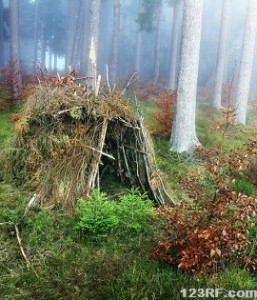
The most important safety feature of the perimeter defenses is to keep out unwanted animals or armed raiding parties from the campsite. For animals, the human scent and the outer barriers should be enough to keep them away. Unwanted raiding parties can be neutralized by well-armed and trained members of the group if necessary.
There is no wrong doing if you defend yourself against others who wish to take from you by violence or force.
- Ignoring Safety Against Flash Floods
If the area you are camping in is known for flash flooding then keep an eye on the weather. If heavy cloud cover is observed over the nearby mountains there is a good chance of flash flooding in the low lying land areas around your location.
Never underestimate the power and speed of flash flooding. If you see it coming, get to the high ground as quickly as possible. Do not try to out run it. In most cases you will lose and get swept away.
If you are in a vehicle on the high ground, are about to cross a small creek, do not cross if the bed begins to fill with water. Flash flooding water can wash the vehicle away, flip it, and possibly kill the occupants.
- Not Knowing and Understanding the Cause and Effects of Wildfires
Each year thousands of acres of land are destroyed by these fires, untold numbers of wild and domestic animals are killed, and also humans that did not evacuate from the area in time.
With the first early warning of wildfires, pack up and leave the area and go to one of safety. Take everything you can including your animals. It is easier to rebuild in a new location than get trapped and die trying to save the old homestead.
Avoiding the main causes of wildfires is the best way to prepare for them. Here are four main causes of wildfires:
- Lightning strikes a tree: It causes a major fire in very dry woodlands that have not seem any rain for a long time. With a good dry breeze, the fire will spread even quicker and set off secondary blazes.
- Campfires: Campfires may be too large for the weather conditions or not put out correctly once you are done with the fire. For example, water and dirt may have been put on the campfire, but not enough to completely put out the fire. Hot embers can retain their heat for days, and, when conditions are right, start a new fire. The wind can also blow hot cinders into a very dry wooded area which starts secondary fires that get out of control.
- Debris burning: Burning garbage or other debris in windy conditions can cause wildfires. The wind fans the fire and pieces of flaming materials go airborne and start secondary fires.
- Sparks from power equipment: All power equipment that are used in woodlands are designed with spark retarding and capture systems. If these systems are broken or damaged there is a chance of a hot spark accidentally starting a fire that could get out of control and become a wildfire. To keep this from happening inspect and repair damaged fire safety parts regularly.
- Not Knowing the Area
When bugging out to your new home location, the prepared plans must include where to find food and water that is safe to consume. There should be one or two good hunters also trained in tracking in the group.
This includes evaluating animals present by tracks and knowing which ones are too big or dangerous for the party to handle.
They should also know the trip route well and also where to hunt wild game and find safe water.
- Missing the Skills for Surviving in the Wilderness
Stalking
Stalking animals is an art form. The hunter must be as quiet as possible while closing in on the wild animal. Any sudden noise like the breaking of a twig could cause the game to run away out of your effective shot range. When the hunter has closed to a good safe shot range, shoot the animal with a one kill shot. The last thing the hunter wants to do is track down an injured animal that could give the campsite away to others.
The safest way to kill the desired game
There are many ways to kill game. Game can be shot with firearms, bows, crossbows, or even taken in traps. The hunter must decide which is the best (as in what will yield the most usable meat) and safest way to kill the game being hunted.
- Bear, turkey, and deer can be taken with a bow or a crossbow if you do not want to draw attention with the sound of a gunshot.
- For small game like rabbits, use snares or traps. Remember to mark the trap locations so others will not step in them or activate them.
Survival Decision Point: Camouflage vs Blaze – It may be safer to wear blaze when hunting under normal hunting conditions to be seen at a distance, but in a post major crisis world, being seen could get you killed. That being said, while wearing camouflage the hunter is not visible to other hunters, which may lead to being shot by other hunters in your survival group. Since every survival situation is different the hunters must make up their mind to wear or not to wear camouflage or blaze.
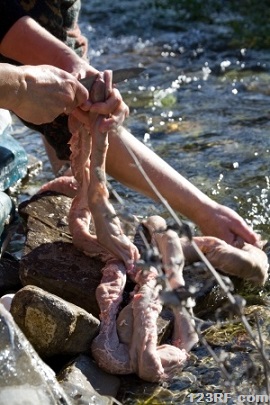
- Birds: Do not skin them pluck them instead. What little fat there is on the bird will be lost if skinned. Then remove all of the guts and wash out the body cavity.
- Bear, deer, and other mammals: Should be skinned, gutted, body cavity washed out, and cut up into easily to carry pieces.
- Reptiles: Most reptiles are safe to eat. All snakes are safe to eat once killed, beheaded, skinned, gutted, and cooked by either roasting the meat over a fire or boiling it.
How to Store Food in the Wilderness
In the absence of refrigeration, failing to use other food preservation methods will cause foods to spoil quickly, which can cause a life threatening illness. It is also very important to hone your skills in these preparation methods so that food remains safe to eat for as long as possible.
- Smoking foods and how to build a smoking hut
- Sun and Rack Drying
- Freezing in Ice Houses
- Dehydrating
- Canning
How to Find Safe Drinking Water in the Wilderness
It is best to treat all water as contaminated because even clear running water can have all kinds of contaminants including microorganisms and heavy metals. Even water from a stinking, stagnant mud puddle can be made fit to drink.
There are many different methods for purifying water. Before relying on any system, you can, and should use water testing kits available on the market to test out your system to see if you have all bases covered.
Overall, your system should include viable processes for:
- Filtration to remove both large and small debris and sediment,
- Removal of heavy metals and toxins (activated charcoal will not remove all toxins or heavy metals; so you will need to use bone char or something else),
- Removal of bacteria and other microorganisms (boiling the water usually works for this, as does setting it out in a plastic bottle in the sun for several hours).
Before a major crisis occurs is the time to test and retest your wilderness and camping skills. For those skills that do not work, there is still time to learn others that will work.
Keep in mind which deadly mistakes can happen, and practice safer ways now before it is too late.


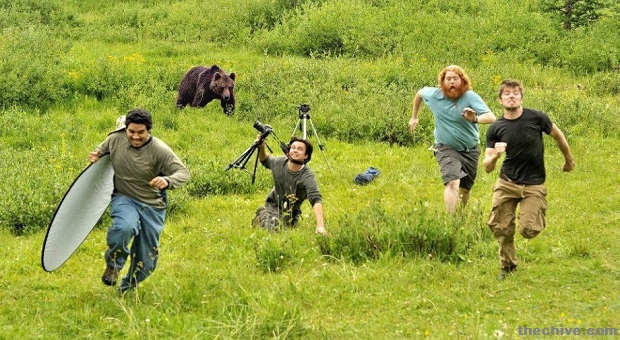

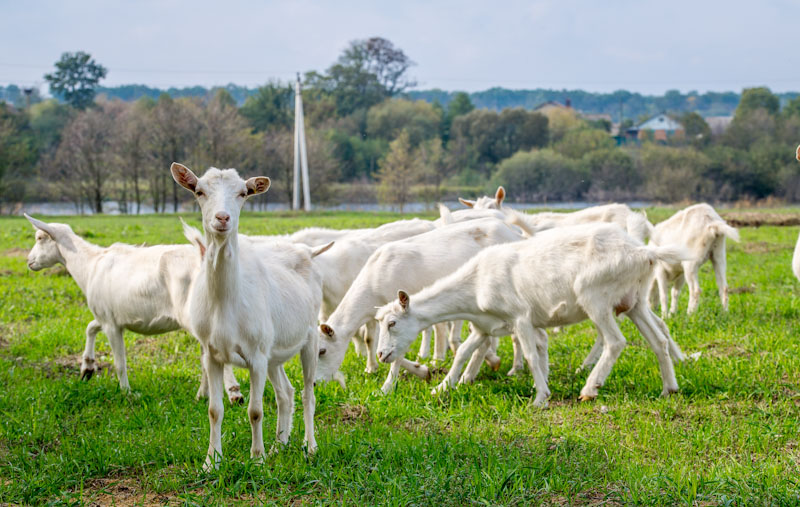
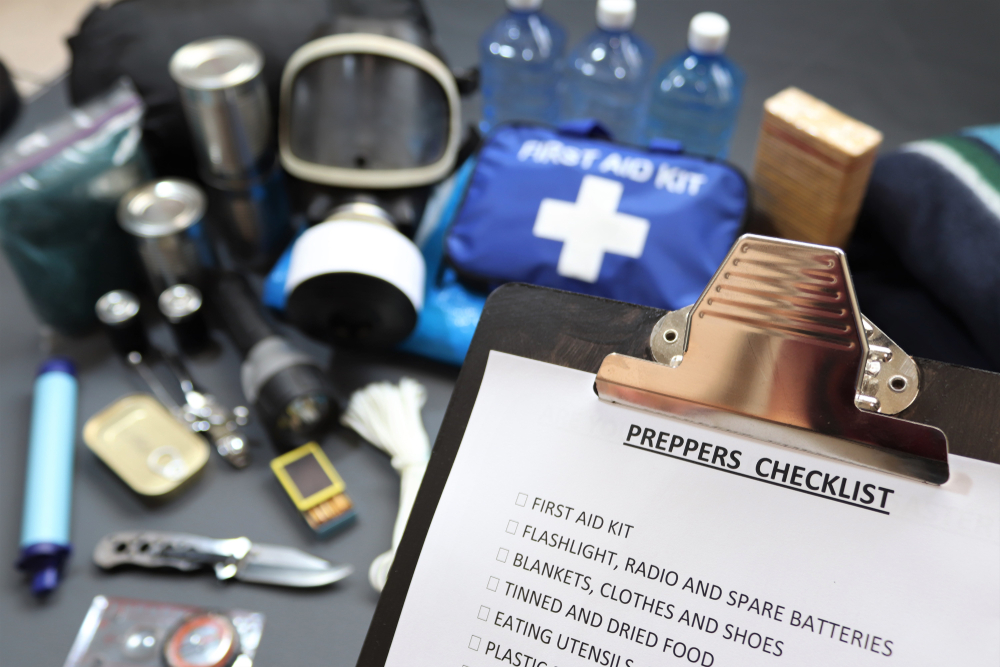
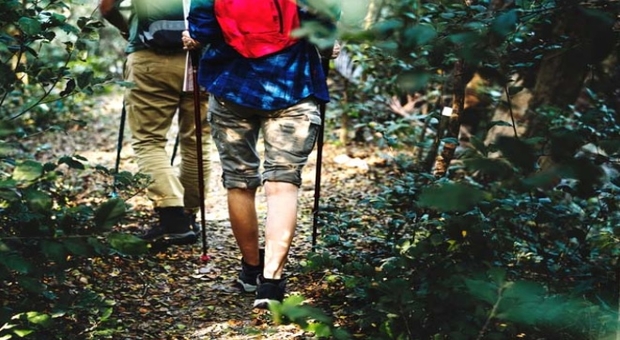
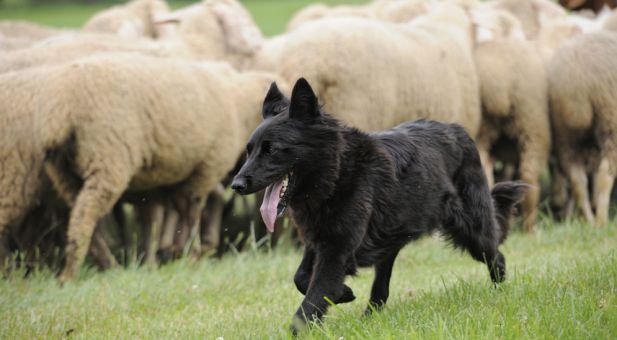


duggy dugg | September 11, 2014
|
ever seen a bear startled by a shotgun blast ? suckers can move 3 times faster than you…climb any tree you can climb … can climb out on any rope you suspend from trees for hammock or food storage..
the only thing that can stifle a bear is a disc around the tree or rope or board platform that you need a rope or ladder to access …
Pingback:Surviving in the Wild: 8 Deadly Mistakes to Avoid | Rowan Oath Keepers | September 11, 2014
|
Joe Earley | September 11, 2014
|
What in the world is the photo showing? It looks like something is being washed off in a river, it looks like it might be a skinned and lumpy snake, or maybe intestines.
Mary Dupre | April 15, 2018
|
Ha ha you are right was thinking the same. Funny
Great Grey | September 13, 2014
|
Nice fire info but, there is missing info about what to do if your escape routes are blocked. Were good and bad areas to try get to too survive. Use of back fire to make a place you can survive a fire and/or stop it. Why hiding in a cave may not save your life.
tim | September 13, 2014
|
you left out one of the most important mistakes “lack of proper sanitation”. not properly disposing of waste, cleaning your hands or body will get you sick fast and make you a liability to other people. I actually live out in the woods year round and I insist that others around me wash their hands and dispose of their waste daily. those who don’t comply can pack their trash and leave before I have to physically remove them. also not leaving out nearby leftovers to attract vermin and raccoons.
Pingback:Eight Deadly Mistakes to Avoid | September 15, 2014
|
Pingback:Bug Out the Right Way | Survival Life | Blog - Survival Life | Preppers | Survival Gear | Blog | November 4, 2014
|
Pingback:Bug Out the Right Way | Avoid These Deadly Wilderness Survival Mistakes | Survivalist Basics | Be Prepared For Anything! | November 4, 2014
|
Pingback:Bug Out the Right Way | Survival Life | Blog | November 4, 2014
|
Pingback:Bug Out the Right Way | Avoid These Deadly Wilderness Survival Mistakes | Patriot Powered News | November 4, 2014
|
trey | November 5, 2014
|
Hunters must be quiet; not quite.
Pingback:5 Real Life Survival Stories To Learn From | Survival skills, survival guns, survival guide | March 25, 2015
|
Pingback:5 Real Life Survival Stories To Learn From | The Prepper Dome | March 25, 2015
|
Pingback:4 Snakes To Beware Of In American Wilderness | Survival skills, survival guns, survival guide | May 7, 2015
|
Pingback:4 Snakes To Beware Of In American Wildernessdisasterdefense.us | disasterdefense.us | May 8, 2015
|
Pingback:Deadliest Snakes in North America • Survival Atlas – The Trusted Source for Everything Survival | May 16, 2015
|
Pingback:10 Essential Tools Every Serious Camper Should Pack for a Trip - EverydayHowTo.net | June 27, 2015
|
Pingback:Dangerous Encounters: When Man Meets Shark | Survival skills, survival guns, survival guide | September 7, 2015
|
Pingback:Dangerous Encounters: When Man Meets Sharkdisasterdefense.us | disasterdefense.us | September 7, 2015
|
Mark Koko | February 15, 2016
|
I can’t stop laugh while I saw top of the picture so funny. Run run run….
Pingback:Tips For Surviving In The Wild | The Homestead Survival | May 28, 2016
|
sparks | July 25, 2017
|
Need more info on BONE CHAR also instructions for mfg.
Travis Walker | October 27, 2017
|
Really good top image. That happens when you chase a bear. Anyway, this is a really good article, Fred. Spot on #7 knowing the place you’re into and being familiar with its surrounding is very helpful. That way, you can easily adjust and know what to do, where to run to and what to hunt. Also, you need to check if the place is sustainable to fit in your needs, specially if you’re bugging out or camping with your family
Gordon Rottman | April 25, 2018
|
When selecting a campsite, double check trees for rooted, broken, or loose limbs that could fall if the winds pick up.
Issac | August 16, 2018
|
Gad-damn can somebody help the falling guy.